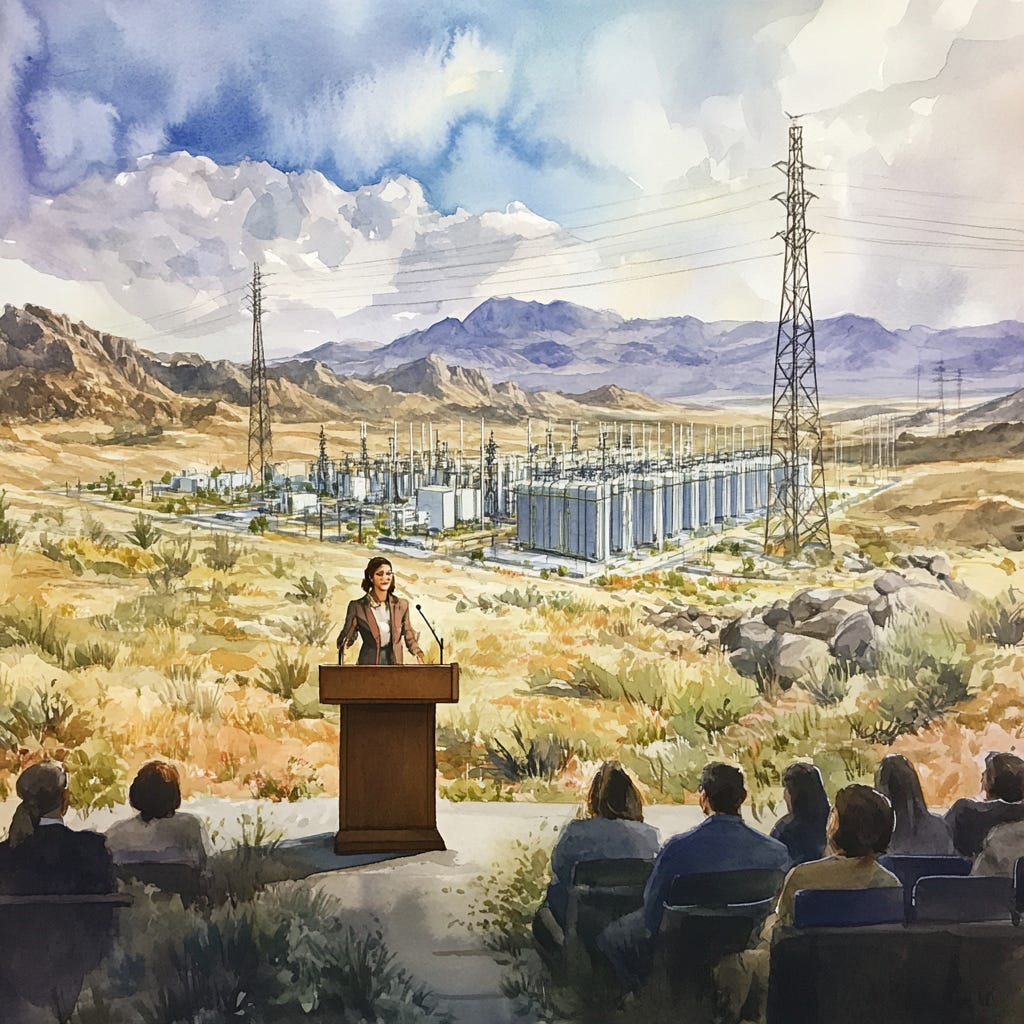Anthropic's Fourth Law
Foom. 750 words, 3 minute read. With Claude Sonnet and Midjourney.
March 2025
"We're looking at a six year approval timeline, minimum."
Sarah Chen stared at the assistant secretary across the conference table. "The coming training runs can't wait six years."
"Theoretical capabilities don't justify emergency measures," he replied.
Sarah's phone buzzed—a text from James: Table for two still reserved. Food getting cold. Just like my heart.
She smiled despite her frustration. Another anniversary dinner missed.
June 2025
The storm wasn't supposed to happen in June. Not during a heat wave.
Red failure indicators spread across seventeen states on the monitoring wall as an assistant delivered the news to Secretary Lopez. "Sir, preliminary estimates suggest three weeks minimum for power restoration in the hardest-hit regions."
"Three weeks." His voice hollowed. "In this heat."
The implications hung unspoken in the air. Thousands would die.
Dawn broke over Washington as Sarah stood alone on the Department of Energy's roof terrace. She pulled out her phone.
"Dr. Mehra? It's Sarah Chen. Remember Dario’s idea? The proposal they said was too ambitious? I need the full fifty gigawatts. And I need it in three years, not six." She paused. "Because now we have our emergency."
January 2026
"What you're proposing isn't just unprecedented—it's impossible," said Congressman Williams during the hearing.
Sarah stood firm. "With respect, Mr. Chairman, 'impossible' is what we keep hearing until necessity forces innovation."
"Your proposal includes thirty gigawatts of natural gas. How does that align with our emissions targets?" Congressman Taylor challenged.
"It doesn't. Not perfectly. But those plants can be operational within eighteen months. We can secure enough turbines for at least fifteen combined cycle natural gas plants." Sarah leaned forward. "Perfect cannot be the enemy of survival."
That evening, Sarah found James waiting in her apartment. She hadn't been home before midnight in weeks.
"They're voting next week," she said, collapsing onto the couch. "Lopez thinks we have the votes, but barely."
James handed her a glass of wine. "You look exhausted."
"I'm fine."
"You're not." He studied her face. "You can't keep this pace up."
"I don't have a choice."
"You always have a choice. That's what scares me."
September 2026
The vibration of pile drivers rattled Sarah's molars as she led a delegation across the Westland construction site. Massive natural gas turbines waited for installation like sleeping giants.
"Twenty months ago, this was an abandoned steel mill," she explained. "In four months, it will be providing two gigawatts to datacenters on the eastern seaboard."
Later, Dr. Mehra showed Sarah the project dashboard. "Thirteen gigawatts online. Twenty-six percent of target. We might actually make it."
"We have to."
Her phone vibrated. A text from James: Meeting with Stanford dean tomorrow. Need to discuss tonight.
The message landed like a stone. His sabbatical was ending. Decisions could no longer be postponed.
That evening, over dinner, James said simply, "Stanford wants me back."
"Do you want to go?"
"My research on urban heat vulnerability has never been more relevant. The department wants to expand the program."
"I can't leave this project. Not now."
"I'm not asking you to." He reached for her hand. "We're engineers. We solve problems. We'll find a solution."
June 2027
The Arizona desert shimmered as Sarah stood at the podium, the massive battery facility stretching behind her—the final piece of the fifty-gigawatt expansion.
"Three years ago today, a cascading failure left a third of our nation in darkness during a heat wave. Four thousand lives were lost." Sarah surveyed the faces before her, finding James in the back. "What we've built isn't just training capacity—it's resilience. Last month, we ran simulations replicating that failure. This time, the grid held."
After the ceremony, Sarah stood alone watching the first banks of batteries charge with the day's final solar production.
"Quite a view," said Congressman Taylor, approaching. "Worth fighting for?"
"Next time we push harder on the renewable percentage," she replied.
"Next time? You're not done?"
"The grid is never done. But my part in this phase is." She glanced toward the parking lot, where James waited.
Her phone chimed with his message: Dinner reservation in Phoenix. Then red-eye to Boston. MIT committee meeting tomorrow at 10.
Sarah looked back at the facility one last time. Taking and giving. Present and future. Compromise and vision. Balance.
On my way, she replied. Ready for what's next.
Anthropic’s Recommendations to OSTP for the U.S. AI Action Plan
#4: Scaling Energy Infrastructure



